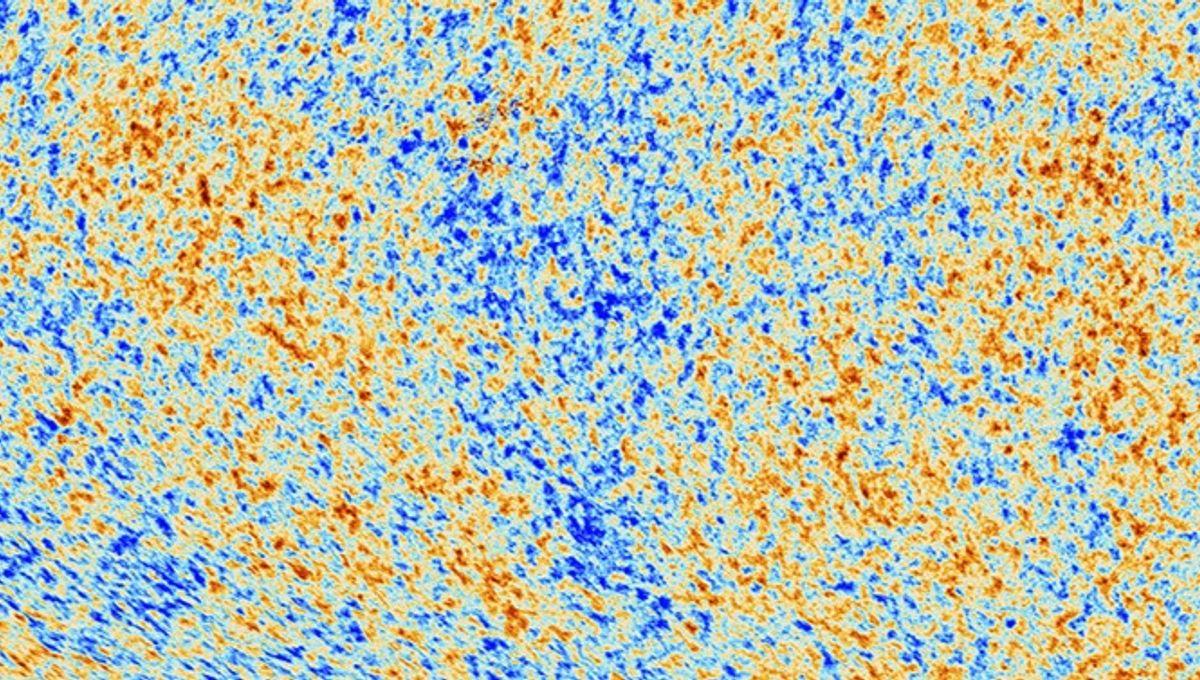-
Nieuws Feed
- EXPLORE
-
Pagina
-
Blogs
-
Forums
There Is A Crucial Reason Why We Will Never See The Big Bang Directly With Our Telescopes

There Is A Crucial Reason Why We Will Never See The Big Bang Directly With Our Telescopes
Light moves at a finite speed, so whenever we look at something, we look at how it was in the past. This doesn’t matter in your everyday life, but when you consider space, it starts to become important. When we look at the Moon, for example, we are looking at how it was about one second ago, not how it is right now.
The finiteness of the speed of light allows us to study the universe's past by simply looking further away. This has provided incredible insights into our understanding of how stars, planets, and even galaxies have evolved. But no matter how far we look into the past, we will never see the very beginning of the universe. It is impossible – with one caveat. Well, two. The good news is that we have already detected the first light that ever freely shone in the universe. That is the cosmic microwave background. It is not called the fossilized echo of the Big Bang for nothing. Around 380,000 years after the Big Bang, this primordial light was finally free to move, spreading into the universe with the subtle impression of what happened in those formative millennia. Before this, the light was trapped because it was too energetic. The components of atoms, the protons and neutrons at their core, and the electrons that surround them, formed in the first few minutes after the Big Bang. There was also a lot of light with a lot of energy. So, whenever an atom formed, the light was absorbed by the electron, which would escape the protons and neutrons. This was happening everywhere. Atoms could not grab electrons because light would excite the electrons, ripping atoms apart. From the point of view of light, it was jumping from electron to electron, never stopping. It was only as the universe expanded and cooled down that the atom could finally begin to form without interruptions. At that point, the original light was free to move. This is the reason why we can’t see what happened at the very beginning of the universe. There is no free path for light to get from the Big Bang to our telescopes. We simply cannot see beyond the cosmic microwave background. It is the first light and the ultimate limit to our ability to study the universe with the electromagnetic spectrum. As you might have noticed, we have been careful in stressing that it is an ultimate limit for light. There are two things in the universe that can go beyond that, simply because they do not really care about matter. One is neutrinos. These particles have a tiny mass and no electric charge, so they hardly interact with matter. Every second, 60 billion neutrinos are flowing through every square centimeter of your body. Some estimates suggest that 300 of those are from the Big Bang. This is the cosmic neutrino background. The second one is gravitational waves. These are subtle changes in space-time due to major gravitational events like supernovae or collisions between dense objects such as black holes. There is a gravitational wave background too, caused by supermassive black holes orbiting each other, as well as effects from the Big Bang and one of the hypothetical early phases of the universe: cosmic inflation. Both neutrinos and gravitational waves are extremely difficult to study, so we have not seen their respective signals from the Big Bang yet. It is possible, though. The Pulsar Timing Array, which uses pulsating neutron stars as a galaxy-sized gravitational wave detector, found some possible hints of the gravitational wave background. Light in all its forms is fundamental for our understanding of the cosmos, but it is very exciting that even when we reached its limits, we might have found a way to go around it.The first light that was free to shine
Time for the caveats


